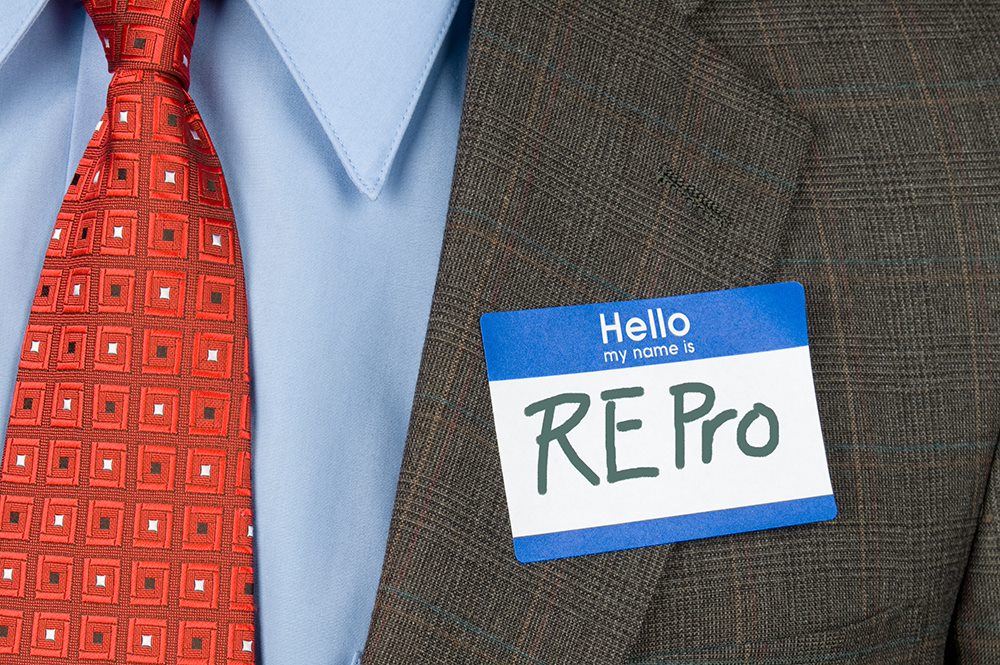IRS Definition of Real Estate Professional Tax Status
July, 19 2022 by Carolyn Richardson, EA, MBA
If you’ve ever owned a rental property (or properties), you probably realize that once your income goes over $100,000, the losses from the rentals are limited by the tax code. Worse, when your other income goes over $150,000, any losses you may have incurred on your rental properties will be eliminated, leaving you to carry them forward to future years where you may be able to claim them.
One way to avoid this limitation is to determine if you qualify as a “Real Estate Professional,” or RE Pro, under the tax code. Real estate professionals can claim unlimited losses on rental properties they materially participate in. But while this designation sounds simple enough, there are many rules involved in qualifying as one.
What a RE Pro Isn’t
Before we get into who can qualify as a real estate professional, let’s first clarify who probably can’t qualify. While there is a remote possibility that one of these people could be eligible, based on a long history of court cases since the enactment of this code section, these are the ones who are most likely to run into trouble:
- People who think holding a real estate agent’s license automatically qualify them as a RE Pro. While holding a real estate broker license can help, holding a realtor or agent’s license isn’t any more beneficial than, say, a teaching credential.
- Taxpayers who have full-time jobs in other fields unrelated to real estate; this is because the hour requirements spent on your own rental holdings (outlined below) are significant.
- Taxpayers who have hired a property manager to manage the day-to-day activities of the rental properties.
- Taxpayers who are terrible record keepers. Because of the hours required to meet the RE Pro status, in the case of an audit, the IRS will want to see a log of the time you spend working on your rental property. And the Tax Court goes hard on taxpayers who determine their hours using “ballpark guesstimates.”
Also, keep in mind that, as far as your taxes are concerned, the Real Estate Pro status is only good for claiming losses on your rental real estate activities when your income is over $100,000. It confers no other special tax benefits and will not convert those haircuts and business suits into tax-deductible expenses. And this status is only needed if your property incurs losses during the tax year, as it doesn’t generate any tax benefits if your properties show profits.
Hurdle #1 – The Two-Prong Hours Tests
The first hurdle you must cross to designate yourself as a Real Estate Professional is to meet BOTH of the following tests:
- More than half of your personal services performed in all your trades or businesses during the tax year must be performed in real property trades or businesses in which you materially participate (we’ll discuss “material participation” down below); and
- You must perform at least 750 hours of services during the tax year in real property trades or businesses in which you materially participate.
These two tests alone are enough to disqualify most people who attempt to use the RE Pro status on their taxes, especially if they have a full-time job in another field. For example, if you are an engineer working in aerospace, you are likely working roughly 2,000 hours a year in a full-time position. So, for you to meet Test #1, you would have to work more than 2,000 hours in a real property trade or business (including your own rental properties) to work “more than half” of your personal service time in a real property trade. And sixteen-hour days all year round are tough on anyone. Even if you are working only part-time, that is still about 1,000 hours per year, so you would need to work at least that many hours in real property trades.
What is a real property trade or business? Real property trades or businesses include the development, construction, acquisition, conversion, rental, operation or management, or brokerage of real property. Look carefully at what is missing in this list: Real estate agents or realtors. Most realtors work for brokers but are not, themselves, brokers. Therefore, if you are a school teacher in your full-time job but a realtor on the side and during school breaks, neither of these jobs will qualify for Test #1. On the other hand, if your full-time occupation is working as a General Contractor, remodeling and building homes for others, that would qualify as a real property trade or business, and you could potentially qualify as a Real Estate Pro.
For Test #2, you must work at least 750 hours performing services in a real property trade. The rules permit you to count the time spent on performing services on your own rental properties toward this test, but since most rental property owners are not spending this many hours performing services on their rental, they won’t meet this test unless they own multiple rentals. “Personal Services,” in this case, are such things as performing repairs, painting, gardening, and cleaning. It does not include “investor-type” activities, such as researching new rentals to purchase, reviewing financials related to the rentals, or balancing your books. Generally, it does not include the travel time incurred to get to your rental to perform those services, although those hours have sometimes been allowed by the Tax Court.
Hurdle #2 – Material Participation Tests
Keep in mind that both tests discussed above require “material participation” to count toward the hours required to be a RE Pro. Material participation means that you, the taxpayer, are involved in the activity in a way that is regular, continuous, and substantial (by the way, this is also how the IRS determines that you have a deductible business loss versus a nondeductible hobby loss).
There are seven material participation tests, but only five of them apply to real estate professional status. The five applicable tests are:
- You must participate in the activity for at least 500 hours during the tax year;
- Your activity must be substantially all of the participation in the activity for all individuals during the tax year, including individuals who did not own an interest in the activity. For example, you spend only 60 hours in the activity during the year, but no other person (including someone you hire, such as a plumber) spends time working on the property, or they are only there for an hour or two at most. If your hired gardener spends 2 hours a month at the property, though, you may not qualify under this test.
- You must participate more than 100 hours during the tax year, and your participation must be at least as much as any other person’s activity on the property;
- You must have materially participated for any five of the previous ten years. The five years do not need to be consecutive;
- Based on all the facts and circumstances, you participate in the activity on a regular, continuous, and substantial basis. You must also participate at least 100 hours during the tax year, and managing the activity will not count if you pay another person to manage the activity or if another individual has more hours managing the activity than you do.
Taxpayers only need to meet one of the tests. Once again, services performed as an investor do not count as material participation unless you are directly involved in the day-to-day management of the activity. However, if both you and your spouse are involved in the management of the activity, your spouse’s hours can count toward the material participation tests, even if you are not filing a joint return for the year.
If you own more than one rental property, you can make an election to treat the properties as one activity by filing a statement with your tax return explaining that you have elected to treat the properties as a single activity and listing which properties are in the activity. Making this election can make it easier to meet the hour requirements under the material participation tests but can have disadvantages when you sell the property. Because you must show you materially participate in each rental activity, the hour requirements become tougher to meet if you own multiple properties.
For example, let’s assume that Stan is retired and owns a fourplex apartment building. Stan gives one tenant a discount on the rent to act as an on-site manager for the other three units. Stan spends about 450 hours per year, which he documents in a log, performing his own repairs and maintenance on the property. Stan also owns a single-family home that is a rental, and he spends 200 hours per year performing services on that rental. Does Stan materially participate in both properties? Stan will not be deemed to be materially participating under the first material participation test, as he does not spend more than 500 hours during the year. While Stan does meet the 100-hour requirement in the third test for the single-family home, he may not meet it for the fourplex because his designated tenant-manager probably spends more time than Stan on the property. The fourplex would fail the second and fifth tests, as the tenant’s reduced rent would be considered compensation. Stan’s only hope of being materially participating in the fourplex would be if he can show he materially participated under the fourth test, showing participation in 5 out of 10 years.
Is Stan a Real Estate Pro? The answer is no. While Stan does not have a full-time job to worry about for the first prong of the other two tests (where he must perform at least half of his time in real estate trades or businesses), he does not meet the second prong, where he must work at least 750 hours in real property trades or businesses in which he materially participates. While Stan worked 750 hours in a real property trade or businesses, he did not materially participate in both of them because his hours on the fourplex - while more than double the amount spent on the single-family home - do not meet the standard for material participation and therefore do not count toward the 750-hour test, leaving Stan with only 200 material participation hours. If Stan elected to treat the two properties as one activity, he might qualify, but it would depend on the facts and circumstances of how many hours his resident property manager/tenant put in during the year.
The Crucial Element – Logging Your Hours

This is why it is critical to maintain a contemporaneous log of the hours spent performing services in your real property trades if you want to claim the RE Pro status on your return. You should document the date the service was performed, which property it was performed at (if you own more than one property), the time spent performing the activity, and a detailed description of what you were doing to incur those hours. Since nearly all of the tests involved in claiming this special tax status hinge around the hours spent on your rental activities, documenting those hours is critical in sustaining that status during an audit. And if your rental properties are incurring significant losses, losing that special loss deduction in an audit can result in a huge tax bill.
The hours spent on an activity must also be reasonable. In one court case, the Court threw out hours claimed where the taxpayer claimed they drove from their home in central California to their rental property in Southern California every weekend, a distance of over 300 miles, leaving Friday after work and then doing gardening. The Court found that this meant that the taxpayer claimed they were gardening for many hours after midnight since the drive was at least 6 hours from the taxpayer’s office to the rental property! In many other cases, the Court has disallowed repetitive, non-detailed logs or logs created solely to defend the claim in an audit.
And one last thing – because the RE Pro status is based entirely on material participation in real property trades or businesses performed during the tax year, that also means you may not meet the qualifications every year. This is not a “one and done” election like some things in tax law. You must show that you meet both of the two-prong hour tests AND the material participation tests every single tax year where you are claiming to be a RE Pro. It is possible to qualify in one year but not another, in which case your losses will be limited under the passive loss rules. You can read more about that in our other blog.
So, keep that log!





